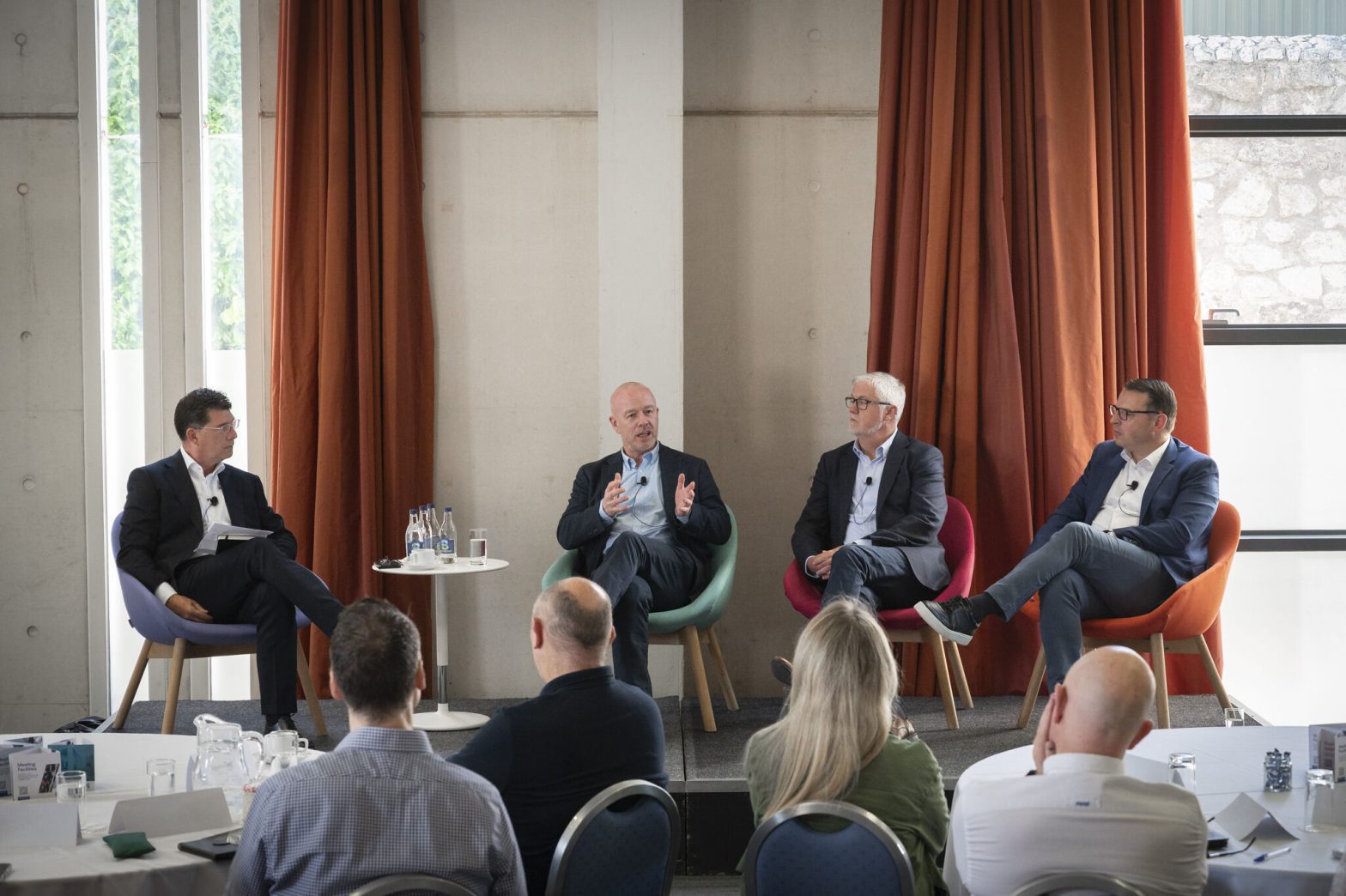Leadership Lessons for 2021
This year, IMI reached out to a number of expert contacts across industries to take the temperature on various themes that were top of mind for leaders. From navigating periods of transition successfully to implementing sustainable practices to hybrid team dynamics, these themes and the related insights from our industry experts provided an invaluable snapshot into organisations, teams and leadership strategies.
Read on for a collated list of the key insights across these themes in 2021.
Majella Darcy, Chief People Officer, Ornua
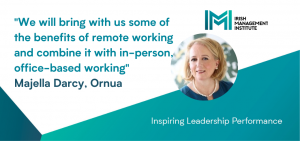
On preparing for a hybrid working model…
“As a global business with over 2,400 people working collaboratively all over the world, moving to a hybrid working model is a natural next step for Ornua. Our business performed well throughout Covid-19 as our people worked together with a common purpose of keeping each other safe and keeping our business running. As we look ahead, we will bring with us some of the benefits of remote working – trust, flexibility, autonomy, and a better work/life balance – and combine it with in-person, office-based working that facilitates better collaboration, innovation, and creativity and strengthens relationships.
We are working on a framework for dynamic working that will be supported by policies and procedures that consider the health and safety, along with the legal and regulatory requirements, in every location we work in. We will enable this new hybrid model with strong digital communications platforms and revised workspaces to promote better collaboration. A hybrid working model, while broadly welcomed, does represent change so we’re focusing on an integrated change management and communications programme that will help support our people as we transition. This programme will include training to help equip our people leaders with the skills they need in managing a hybrid team.”
Bernard Gloster, CEO of Tusla
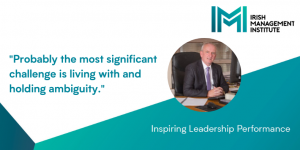
On driving successful transitions…
“Driving successful transitions in Public Services has many of the same challenges as private industry. Our organisations have a history, a culture, a structure and a ‘way of doing things’. We very often have a statutory imperative in a highly regulated environment to do certain things. Driving any transition requires us to not only assess (diagnose) but to acknowledge where we are at and where we have come from.
The definition of where we are going and the transition to get there is critical (the vision, the plan). Probably the most significant challenge is living with and holding ambiguity, that which comes with the VUCA world. Being aware of but not limited by that past and present is probably the key factor in transition to that future, the agility. Recognising our transition will probably lead us to a place needing more transition will help reduce the change frustration and subscribe to the need for continuous improvement.”
Eileen Biggs, Head of D&I, Musgrave
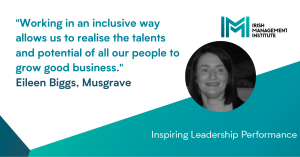
On promoting inclusion…
“Creating a more inclusive and diverse Musgrave is a key part of our people strategy. Working in an inclusive way allows us to realise the talents and potential of all our people to grow good business. There are three pillars to our strategy which focus on engaging and educating colleagues and encouraging an active role in creating a more inclusive environment, enabling the acquisition of more diverse talent that represents our customer base and integrating inclusion and diversity into our workplace policies and ways of working to ensure that we are inclusive and supportive.
Raising awareness of unconscious bias, integrating inclusive leadership into our leadership programmes, mentoring, implementing changes to our recruitment practices and celebrating I&D appreciation events are some of the initiatives that are helping us to build the foundations for a more inclusive culture. We are experiencing the benefits that greater inclusion and diversity bring and are committed to doing more to realise further benefits and have an inclusive high performing environment for people to grow and thrive.”
Michael Patten, Chief HR, ESG and Corporate Affairs Officer, Glanbia
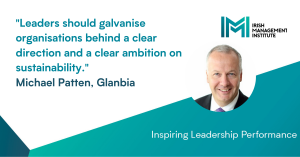
On the sustainability challenge…
“Leadership is a skill that applies to sustainability as it does to most parts of an organisation. Leaders should galvanise organisations behind a clear direction and a clear ambition. Being clear about your ambition is important: you need to know where you need to get to. For us, our direction is about joining forces with industries to meet the Paris targets. We recognise on that journey there will be various iterations. What’s important is we bring all our staff with us so they can make a contribution. Purpose is very important and people rally behind it. It’s about trying to get onto that front foot. Communication, vision and ambition are really important. Getting behind the urgency is crucial, too.”





